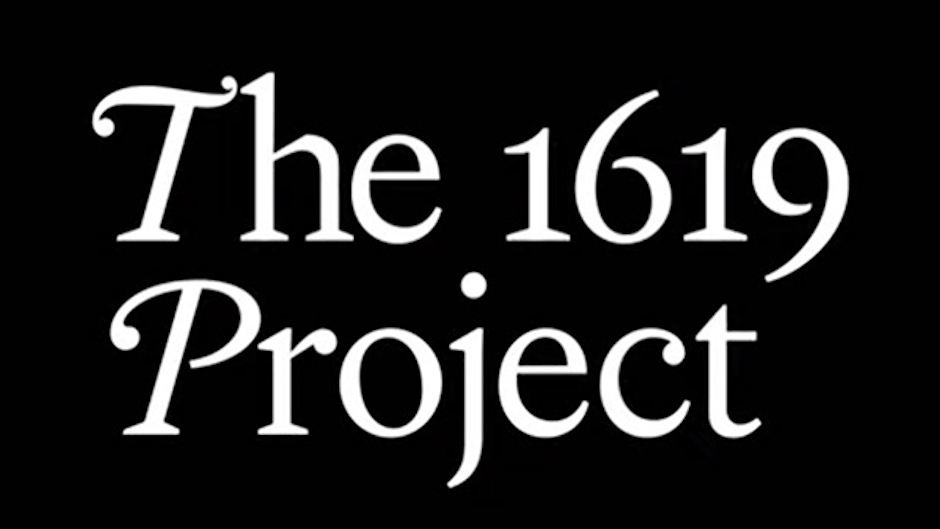The University of Miami School of Law partnered with the Pulitzer Center, the Howard University School of Law and the Racial Justice initiative by the Squire Patton Boggs Foundation and its Deans’ Circle to launch "The 1619 Project" Law School Initiative, an enterprise focusing on curricular resources crafted by law school students and their professors to introduce the initiative. The goal of the venture is to spark frank conversations in legal education about the legacy of slavery.
One dozen students from the University of Miami and another dozen from Howard University Schools of Law set out to develop curricula to accompany “The 1619 Project.” According to the Pulitzer Center, the work that they began in the spring of 2020, became increasingly meaningful as the world watched countless images of the killings of unarmed Black men at the hands of the police. As the country grappled with ideas around racial reconciliation and anti-racist reading lists proliferated, the value of a critical examination of foundational courses in higher education became increasingly important.
“The project began after the Pulitzer Center presented at a Dean’s Circle meeting of the Squire Patton Boggs Foundation,” said Marni Lennon, assistant dean for public interest and pro bono at Miami Law and member of Squire Patton Boggs Foundation Deans' Circle. “Because of the Squire Patton Boggs Foundation, I was able connect with the head of the 1619 Project at the Pulitzer Center.
“They shared the k-12 curriculum, and we asked if they would be open to a build-out for higher education and law schools. My colleague at Howard, assistant dean Carmia Cesar, was eager to participate and expand the educational resources to promote accurate and inclusive teaching in law schools. The ability to link our students to share their perspectives and reactions to the articles led to not only resource development, but an impactful collaboration,” Lennon said.
Inaugurated by The New York Times Magazine's special issue, the collaborative work aims to make a case for an interdisciplinary approach to legal studies that draw upon sobering histories, journalism, public discourse, and creating better lawyers and a more just society through lesson plans, multi-media resources, and a three-part webinar series.
Designed to fill voids, enhance educational materials, and inspire critical thinking, the project initiative modules seek to spotlight historical insights and perspectives missing in understanding contemporary issues, according to the Pulitzer Center.
In the first event on February 26, 2021, of the virtual three-part series, set the stage a series of conversations with authors and students who participated in the law school initiative.
“Our kick-off included inspiring words from Rodney Slater, chair of the board for Squire Patton Boggs Foundation, who framed the imperative for expansion of dialogue and understanding around the origins of the United States,” said Lennon. “We featured lead students, on the project and they shared their process in reviewing articles and designing curriculum and how much the experience meant to them as they grappled with the nation’s debate on the road to racial justice in the wake of George Floyd’s murder.”
Third-year law student Emely Sanchez joined the second virtual panel, led by journalist, author, editor, novelist, and educator Linda Villarosa on March 3, 2021, discussing the long-term effects of slavery on public health and racial justice.
“Recognizing the importance of health equity and using my experience with educational skill-building,” said Sanchez, “I hope ‘The 1619 Project’ will impact legal education and health advocacy.”
Miami native Sanchez is concentrating on public health law and policy at Miami Law and holds undergraduate degrees in political science and criminal justice and obtained her master’s in public health at UM, specializing in health policy and research. Currently, she is president of Miami Law's Health Law Association and is the student liaison for the American Bar Association's Health Law Section.
The third in the series was a conversation on the insights legal professionals can glean from The 1619 Project and the ways that race, racism, and the legacy of slavery permeate all facets of American society. Nikole Hannah-Jones, the Pulitzer Prize-winning creator of "The 1619 Project" was joined by Maddie Seales and Ariana Aboulafia, both 2020 Miami Law graduates.
Abulafia built out the first module in December of 2019, which was reviewed and approved by the Pulitzer team, followed by the two law schools mobilizing the teams in 2020.
“What drew me to the project was an opportunity to share works that had totally changed my perspective, informed my career goals, and to share those with other law students, some of whom may already be … on that path or some who may not be,” Abulafia said. “I think from that informed perspective, law graduates become more effective advocates.”
Read about Miami Law's Social Justice and Public Interest Program

